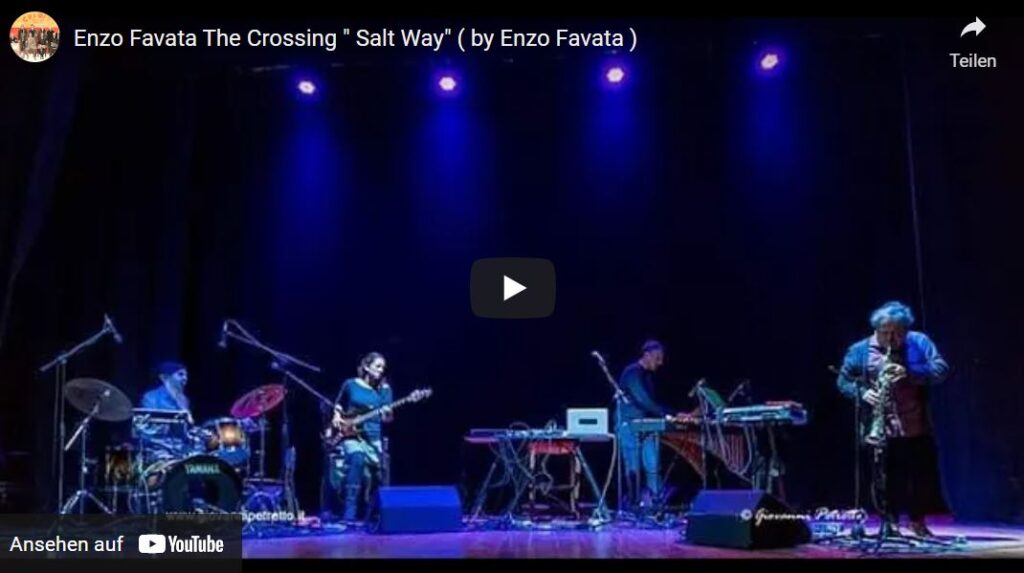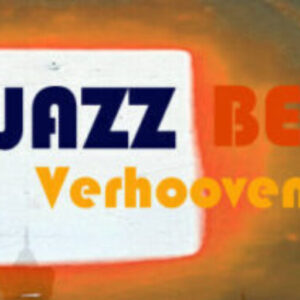Enzo Favata The Crossing
Wir erweitern um Garibaldi : Os Caminhos de Garibaldi
Beim ersten Reinhören: die neue Aufnahme ein opuluntes Werk Release 02.02.2024
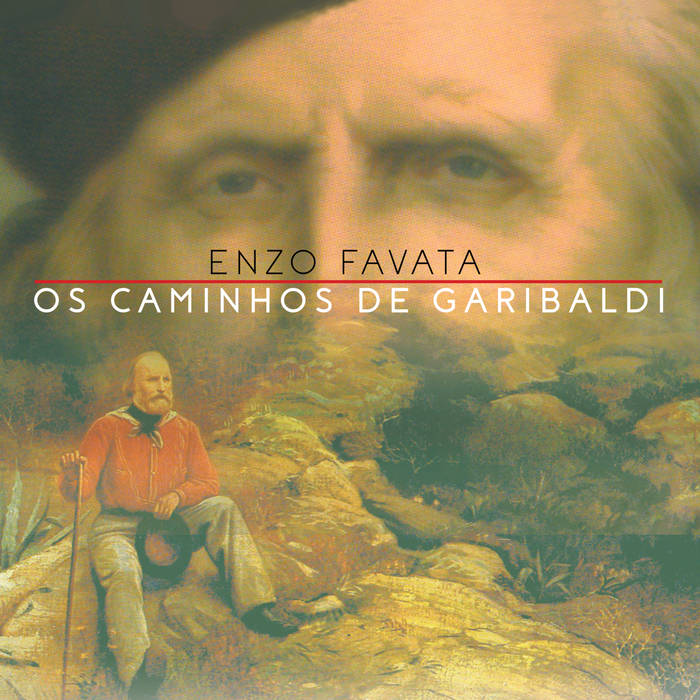
Enzo Favata
Double Bass – Danilo Gallo
Drums – U.T. Gandhi
Piano – Alfonso Santimone
Tenor Saxophone, Alto Saxophone – Enzo Favata
Trombone – Filippo Vignato, Giancarlo Schiaffini
Trumpet, Flugelhorn – Flavio Davanzo
So lange her schon wieder …
Enzo Favata The Crossing 2021
Sardinien, südlich von Korsika. In einem Atemzug genannt: die inseltypische Gesangsform Canto a Tenore, die Rohrpfeife Launeddas und moderne Jazzfestivals – “Sardinien spricht viele musikalische Sprachen.” Die beiden Jazzfestivals: das Time in Jazz in Berchidda. Und das JazzAlguer, eine Konzertreihe in Alghero, bei der über ein halbes Jahr verteilt Konzerte stattfinden. Hinzugefügt sei: Das Musica Sull Boche, dessen Leitung Enzo Favata innehat.
Sardinien wird auch La Paradisola genannt, aus Wikipedia: Sardinien (sardisch Sardigna, italienisch Sardegna, katalanisch Sardenya) ist nach Sizilien die zweitgrößte Insel im Mittelmeer. Die Phönizier nannten sie auf der Stele von Nora Šrdn. Die Euboier nannten die Insel „Ichnoussa“ und die Griechen „Sandalyon“, da ihre Form an einen Fußabdruck erinnert.
Sardinien und der Jazz: du findest zwei Mentoren hier (mit atmosphärischen Aufnahmen): Paolo Fresu (geboren in Sardinien, Berchida) – für das JazzAlguer. Die Aufnahme In Maggiore mit Daniele Di Bonaventura war mir eine Zeitlang eine ganz eigene “Sonntagsmusik”) Und Enzo Favata (geboren in Sardinien, Alghero) – für das Musica Sull Boche.
Enzo Favata, immer auch sardischer Volksmusik verpflichtet, wurde jenseits der ethnischen Musik bald bekannt für seine elektronischen Experimente und seine die Genres übergreifenden Arbeiten um die unterschiedlichen Musikkulturen zwischen Tradition und Moderne, bald auch als Komponist für Filmmusik. Über die Sardischen Grenzen hinaus bekannt wurde er mit dem Album Islà – aufgenommen 1995, veröffentlicht im Jahr 2000.
Einen Meilenstein in der eigenen Entwicklung nennt er die Begegnung mit Dino Saluzzi, mit dem er 1997 Ajó aufnahm. Eine weitere faszinierend belebende Aufnahme ist Voyage en Sardaigne aus dem Jahr 1998, hier 32 Musiker als Vertreter sardischer Volksmusik mitmischen und dir auch typische Vokalwerke im Chor nahegebracht werden mit ihrem eigentümlichem Ausdruck, dem Canto a Tenore.
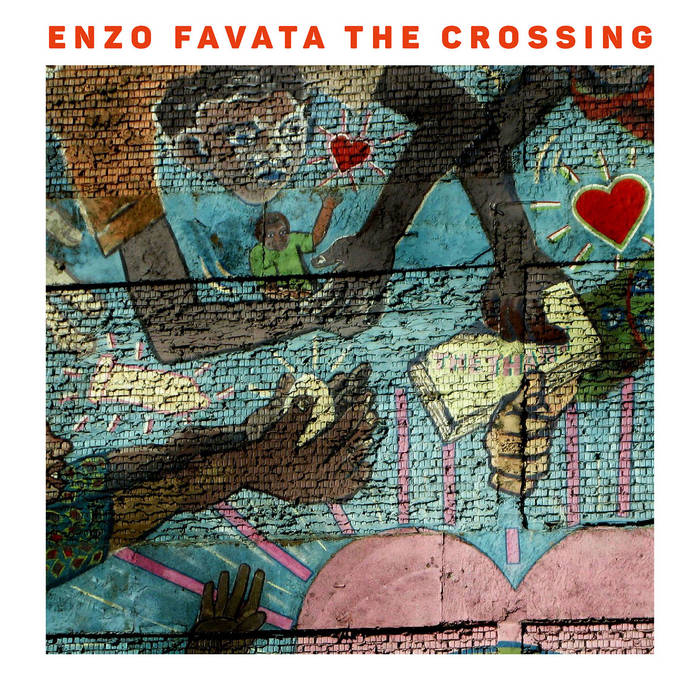
by Enzo Favata
Zur Aufnahme: in Vorbereitung zum Crossing ist es hilfreich, sich folgende Aufnahmen anzuhören: Ian Carr’s Nucleus Roots, Jon Hassels und Brian Enos Fourth World Possible Music und Charlie Hadens Heartplay, das er für Alice Coltrane komponierte, hier: For Toruya. Als Vorab.
Die Aufnahme Enzo Favata The Crossing entstand nach einer Reihe von Live-Auftritten und willst du die Vertiefungen und Wandlungen der Band über die Monate ihrer Live-Mitschnitte nachverfolgen, eignen sich die beiden Konzert-Mitschnitte auf Youtube, siehe Youtube-Link, der zum 12 Minütigen Salt Way führt – und von dort im Anschluss gleich auf das ganze Konzert beim The Sea International Jazz Festival.
Salt Way beginnt smooth und in ruhigem Fahrwasser entlang des Brian Eno, Jon Hassels Songs. In All Names wird das Tempo ungleich erhöht und die innere Arithmetik auf progressiv vorwärtstreibende Rhythmik umgestimmt. In Turn entwickelt sich ein ruhiges Intro zu einem vom Bass und dem Vibraphone aufgerüttelten Schichten- und Themenwechsel, die weichen Asymmetrien zwischen Synthi im Hintergrund und Bass und Vibraphone im Wechsel schicken auf Reise durch Raum und urbane Atmosphäre, immer entlang afrikanischer und mediterraner Wurzeln. Sie führen auch in die Roots zurück, hier als unmittelbare Adaption von Ian Carr.
“The Crossing ist die Band, die ich seit langem gesucht habe”, sagt Enzo Favata. “Und ich brauchte Jazzspieler, die ein neues Gefühl und einen neuen Ansatz für die Kompositionen haben. Konzert für Konzert erreichte das Quartett eine neue Dimension, eine echte Band in all ihren Aspekten, das Hauptziel war es, diese Energie in ein Album zu übertragen.
Ich erreichte dies durch eine Mischung aus Live-Aufnahmen und zusätzlicher Produktion, Overdubs von Keyboards und analogen Synthesizern der 70er Jahre, die für ein orchestrales Gefühl sorgten, wie die Streicher von Salvatore Maiore und Maria Vicentini, wie der kinematische Gesang von Ilaria Pilar Patassini, wie die E-Gitarre von Marcello Peghin und wie der chinesische Meister der Guzheng, Zhan Qian.
Bei der Studio-Session im Februar 2021 nahmen wir zwei Stücke auf, “For Turiya”, das Charlie Haden für Alice Coltrane geschrieben hat, und einen neuen elektronischen High-Energy-Song, “Black Lives Matter” mit gesampelten Vocals von Malcolm X, Fela Kuti und Steve Biko, ein starkes Zeichen gegen Rassismus, ein Problem, das seit langem besteht und immer noch aktuell ist.“
Im Letzten Track “Oasis” werden die Elemente des Albums noch einmal zusammengefasst, hinzu kommt die Liebe zur afrikanischen Musik entlang ihrer äthiopischen Skalen, gespielt mit der Bassklarinette. Die Aufnahme wurde von dem erfahrenen Tontechniker Alberto Erre gemischt und gemastert, der sich mit analogen Geräten, Filtern und Kompressoren bestens auskennt.
Das Ergebnis ist eine warme Klangwand, die mit modernen digitalen Plug-ins kaum zu erreichen ist.
Das Album “The Crossing” stellt einen Übergang und eine zeitliche Überschneidung zwischen dem Jazz-Prog der siebziger Jahre und der Gegenwart dar, mit elektronischen Keyboards und Riffs, die zu einem originellen Sound führen. Eine Aufnahme, die dir noch Stunden später im Ohr rauscht, und gleich auch noch einmal gehört werden will. Insbesondere Oasis hat es mir angetan und könnte die Winterzeit sehr gut überbrücken helfen.
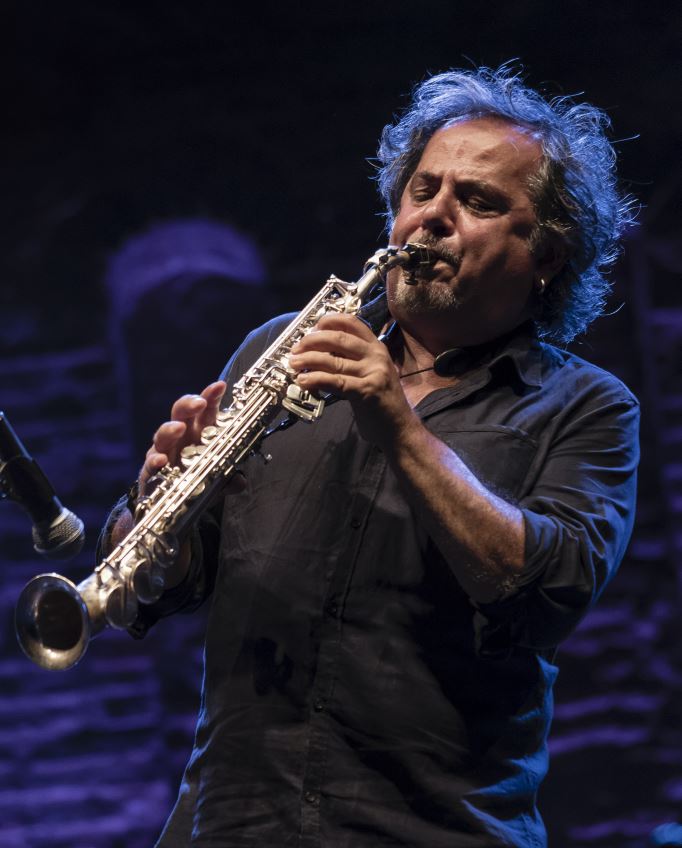
Enzo Favata The Crossing 2021 sind:
Enzo Favata (sax), in Zusammenarbeit mit dem Who is Who der Jazzwelt: mit Dino Saluzzi, mit Mulatu Astatke, Trilok Gurtu, Enrico Rava, dem Art Ensemble of Chicago, Omar Sosa, Django Bates, Miroslav Vitouš, Dave Liebman, Anja Lechner, Lester Bowie, Flavio Boltro, Michel Marre und dem Metropole Orkest.
Pasquale Mirra (vib), mit dem Who is Who der Jazzwelt: Michel Portal, Fred Frith, Nicole Mitchell, Tristan Honsinger, Ernst Rijseger, Rob Mazurek, Ballaké Sissoko, Buch Morris, Lansiné Kouyaté, Jeff Parker, Michael Blake, Gianluca Petrella, Fabrizio Puglisi, Cristiano Calcagnile, Roy Paci
Rosa Brunello (b) – in Italien längst bekannt und geschätzt, Liste ihrer Discographiy
Referenz im Downbeat: The Shuffle Mode | eine Bassistinnenplaylist auf Allaboutjazz
Marco Frattini (dr) – Liste seiner Discography – und mit wem er zusammenspielte von Trilok Gurto bis …
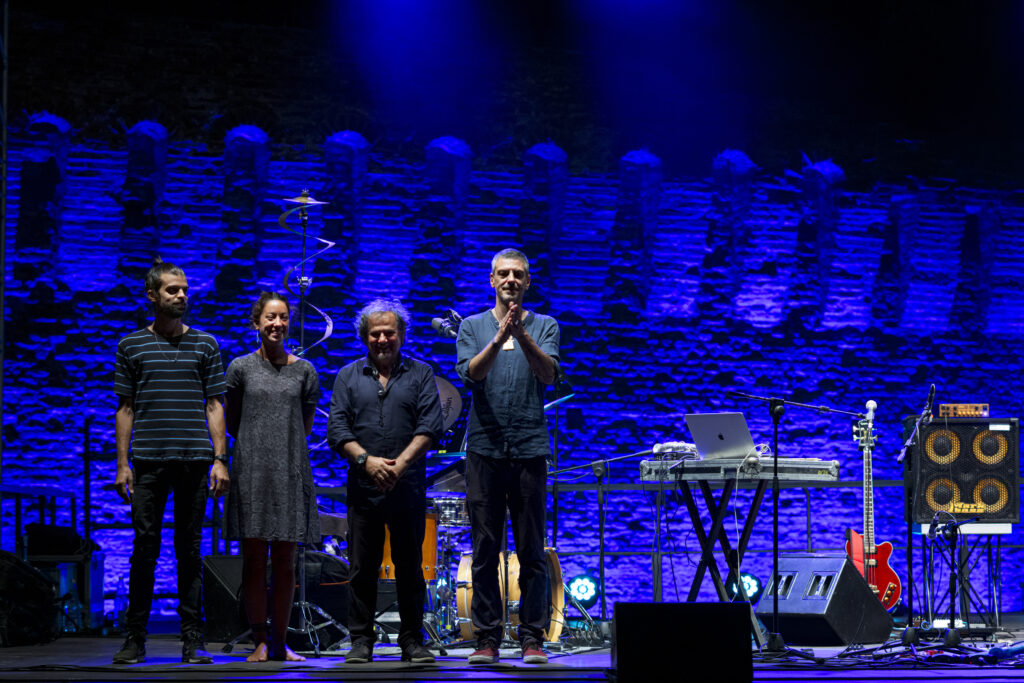
Enzo Favata The Crossing 2021
English Version:
Sardinia, south of Corsica. Mentioned in the same breath: the island’s typical singing form Canto a Tenore, Launedda’s reed pipe and modern jazz festivals – “Sardinia speaks many musical languages.” The two jazz festivals: the Time in Jazz in Berchidda. And the JazzAlguer, a series of concerts in Alghero, with concerts spread over half a year. Add to this: the Musica Sull Boche, directed by Enzo Favata.
Sardinia also called La Paradisola, from Wikipedia: Sardinia (Sardinian Sardigna, Italian Sardegna, Catalan Sardenya) is the second largest island in the Mediterranean after Sicily. The Phoenicians named it Šrdn on the stele of Nora. The Euboians called the island “Ichnoussa” and the Greeks “Sandalyon”, because its shape resembles a footprint.
Sardinia and the jazz, two mentors you will find here (with atmospheric recordings): Paolo Fresu (born in Sardinia, Berchida) – for the JazzAlguer. The recording In Maggiore with Daniele Di Bonaventura was my own “Sunday music” for a while) And Enzo Favata (born in Sardinia, Alghero) – for the Musica Sull Boche.
Enzo Favata, always committed to Sardinian folk music, soon became known beyond ethnic music for his electronic experiments and his works spanning genres around the different musical cultures between tradition and modernity, soon also as a composer for film music. He became known beyond the Sardinian borders with the album Islà – recorded in 1995, released in 2000.
A milestone in his own development he calls the encounter with Dino Saluzzi, with whom he recorded Ajó in 1997. Another fascinatingly invigorating recording is Voyage en Sardaigne from 1998, here 32 musicians join in as representatives of Sardinian folk music and you are also introduced to typical vocal works in chorus with their peculiar expression, the Canto a Tenore.
About the recording: in preparation for Crossing, it is helpful to listen to the following recordings: Ian Carr’s Nucleus Roots, Jon Hassel and Brian Eno‘s Fourth World Possible Music, and Charlie Haden‘s Heartplay composed for Alice Coltrane, here: For Toruya. As a prelude.
The recording Enzo Favata The Crossing was made after a series of live performances and if you want to follow the deepening and transformations of the band over the months of their live recordings, the two concert recordings on Youtube are suitable, see the Youtube link that leads to the 12 minute Salt Way – and from there immediately to the whole concert at The Sea International Jazz Festival.
Salt Way begins smoothly and in calm waters along the Brian Eno, Jon Hassels song. In All Names the tempo is unevenly increased and the inner arithmetic is retuned to progressive propulsive trance. In Turn a calm intro develops into a layer and theme change shaken up by bass and vibraphone, the soft asymmetries between synth in the background and bass and vibraphone in alternation send on a journey through space and urban atmosphere, always along African and Mediterranean roots, or also lead back to the roots, here as a direct adaptation of Ian Carr.
“The Crossing is the band I was looking for since a long time” tells Enzo Favata “And I needed jazz players that had a new feeling and approach to compositions. Concert after concert the quartet reached a new dimension and tightness, a real band in all its aspects and the main goal was to transfer this energy into an album.
I achieved this through a mix of live recordings and additional production, overdubs of keyboards and analogue synths of the 70s and other guests that provided an orchestral feeling, like the strings from Salvatore Maiore and Maria Vicentini, the cinematic vocals of Ilaria Pilar Patassini, Marcello Peghin’s electric guitar and the Chinese master of guzheng, Zhan Qian.
In the studio session in February 2021 we recorded two tracks, “For Turiya” written by Charlie Haden for Alice Coltrane and a new electronic hi-energy song, “Black Lives Matter” with sampled vocals from Malcolm X, Fela Kuti and Steve Biko, a strong stand against racism, a long time problem still actual, and dedicated to the struggle of black people.”
In the last track “Oasis” the elements of the album are once again summarized, added the love for African music along its Ethiopian scales, played with the bass clarinet. The recording was mixed and mastered by the experienced sound engineer Alberto Erre, who knows a lot about analog equipment, filters and compressors.
The result is a warm wall of sound that is hard to achieve with modern digital plug-ins.
The album “The Crossing” represents a transition and a temporal overlap between the jazz prog of the seventies and the present, with electronic keyboards and riffs that lead to an original sound. A recording that still rushes in your ears hours later, and immediately wants to be heard again. Especially Oasis has done it to me and could help bridge the winter time very well.
Siehe auch Berlin Abteilung A-Z. Eine alphabetische Aufstellung vieler Musikerinnen und Musiker aus Berlin.


